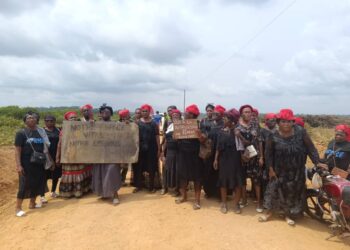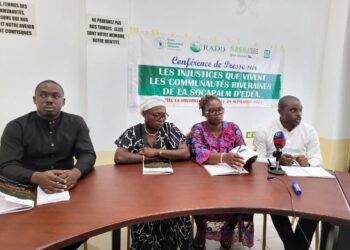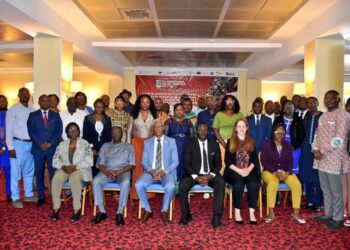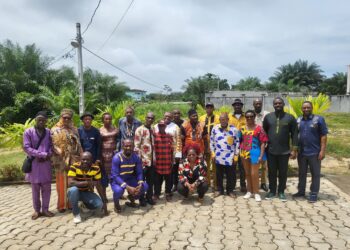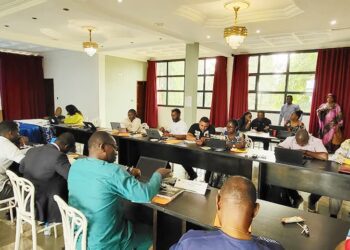Story, Louvier Kindo Tombe
The United Nations Declaration on the Rights of Peasants and Other People working in Rural Areas (UNDROP) is a framework for improving the rights of indigenous peoples and local communities. It is a document that ensures the dignity and well-being of traditional actors in a rural world. Adopted by the United Nations in 2018, Cameroon is a signatory to the document, but it is still not widely promoted in the country.
“The idea behind today’s press conference is firstly to make the document publicly known in Cameroon,” Mbole Veronique, environmentalist at Green Development Advocate (GDA) said.
According to the environmentalist, the UNDROP “is thus aimed at granting a status to marginalized people and groups in rural areas”.
Peasant farmers were onced marginalized by development strategies, and today, the role of peasant agriculture in fighting hunger and the deterioration of ecosystems and climate change is now widely recognized. The fate of the small producers is still threatened by the new pressures on land. The ‘harmonious cohabitation’ between agro-business and peasant agriculture, promoted by international institutions, has not changed the situation. With the United Nations Declaration on the Rights of Peasants and Other People working in Rural Areas (UNDROP), there is hope in the horizon.
“This declaration comes to address those issue that peasant farmers go through,” Mbole Veronique said.
The idea “is to enjoin the state and the powers that be to come up with legally binding laws that will ensure that the rights of peasant farmers are totally respected”, she said.
The presentation of the document to the press, was timely, given that the government is still in the process to reform the 1994 forestry law in the country.
“We expect that in the 1994 forestry law which is still under revision, when it is finally made public, some of these issues should be addressed accordingly,” Mbole Veronique told reporters present at the press conference.
By calling on the government to consider the UNDROP in the 1994 forest law for instance, Green Development Advocate is in a process to vulgarize the UN declaration.
The goal is for the state to adopt rapid administrative, legislative and other measures required for the progressive and immediate realisation of the rights guaranted in the declaration.
Importance of UNDROP
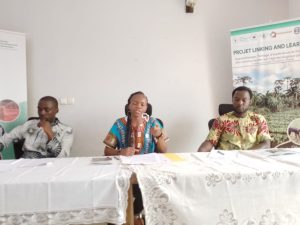
At the moment, there is no specific law governing the particular rights of peasant farmers in Cameroon. The UN declaration is thus an instrument to promote sustainable activities in rural areas.
“Most peasant farmers operate in their localities but the lands they occupy are still often traditionally owned or are state properties,” says mbole Veronique.
This to her “is a major obstacle”, to their emancipation.
“Most will farm for years and at the end of the day an agri-business project would come and take away the land from them.”
Most often, communities around agro-industries don’t really have the rights to freely farm to their satisfaction. Their products are usually bought at giveaway prices discouraging them.
The new advocacy tool for the recognition of the customary rights of peasants and the promotion of their cultural knowledge and practices, highlights a wide range of rights.
These include their personal rights such as the right of existence, their rights as rural workers like the right to a safe and healthy working environment, their land rights which is the most important in UNDROP, their rights to carry out cultural practices freely, their rights related to natural resources and the rights to be able to be part of the procedural processes that involve them as farmers among others.
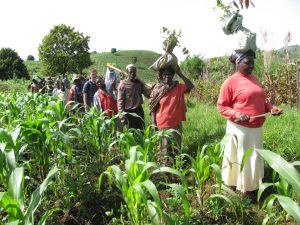
These rights, experts believe, if alligned with national efforts and international agreements, will go a long way to mitigate the impact on peasant farmers in the country and beyond.

